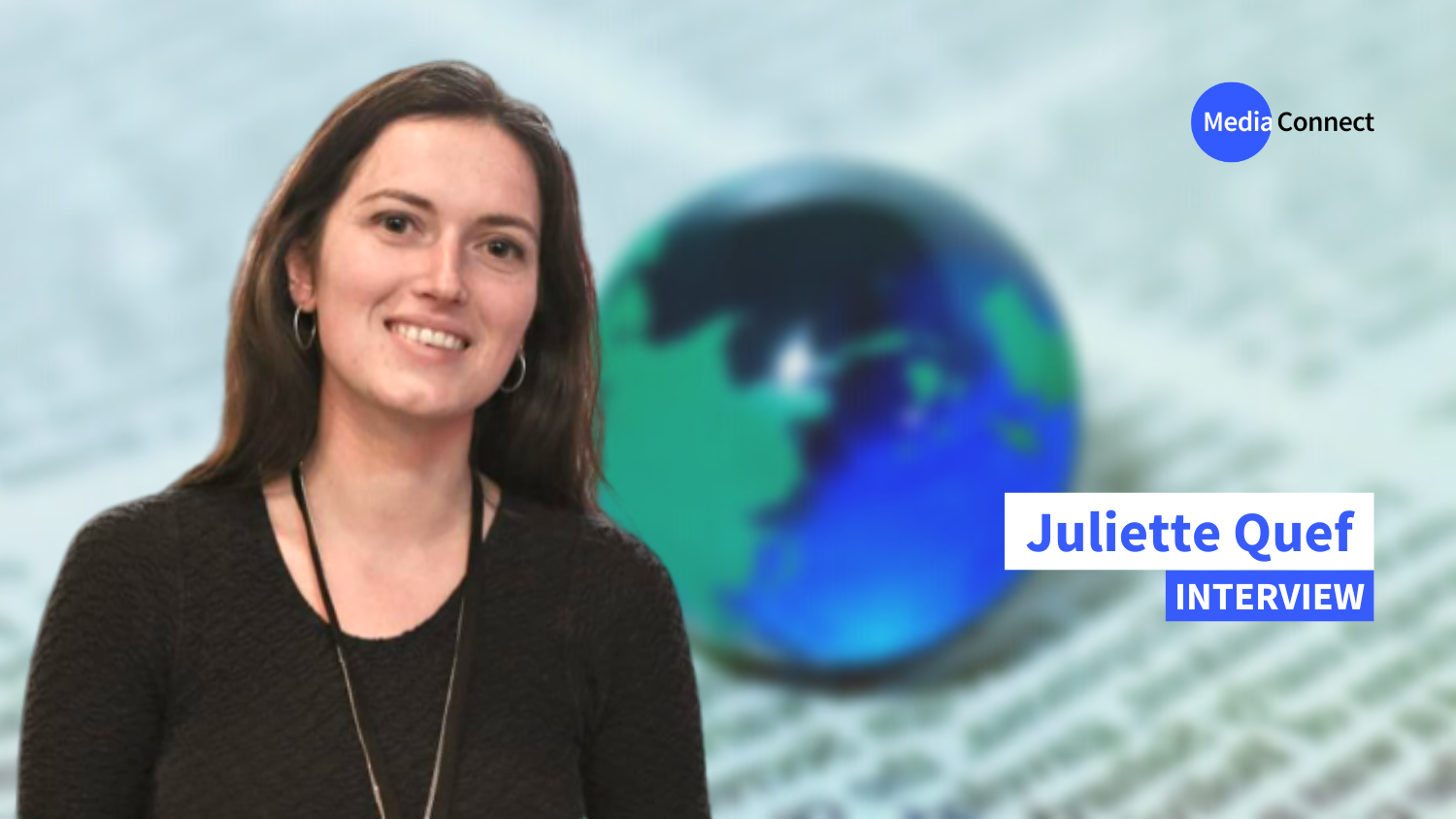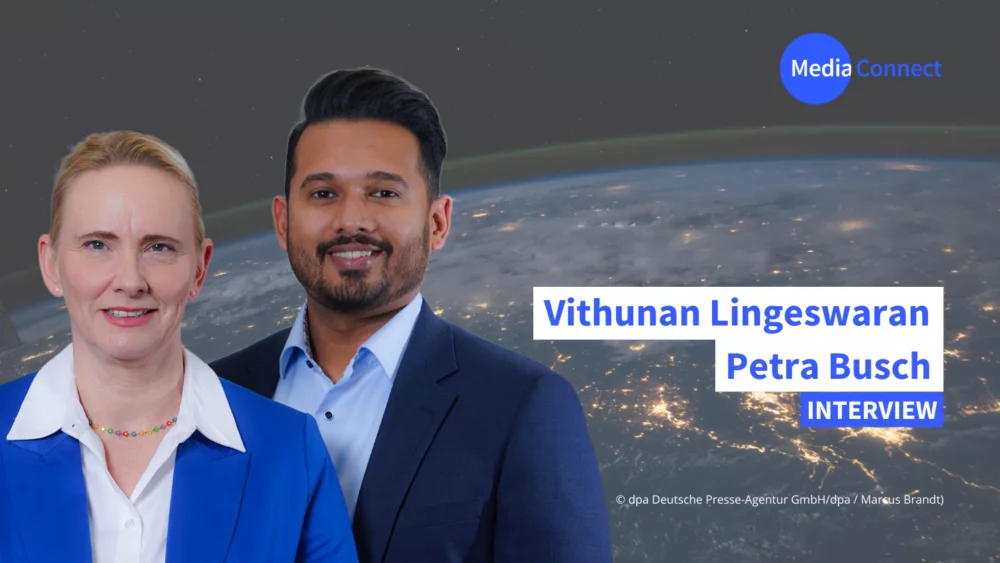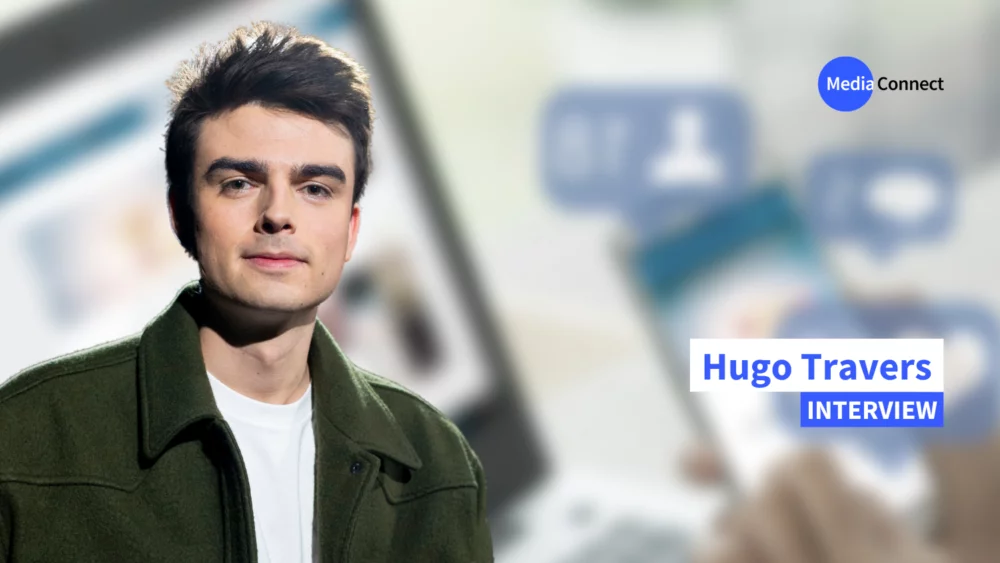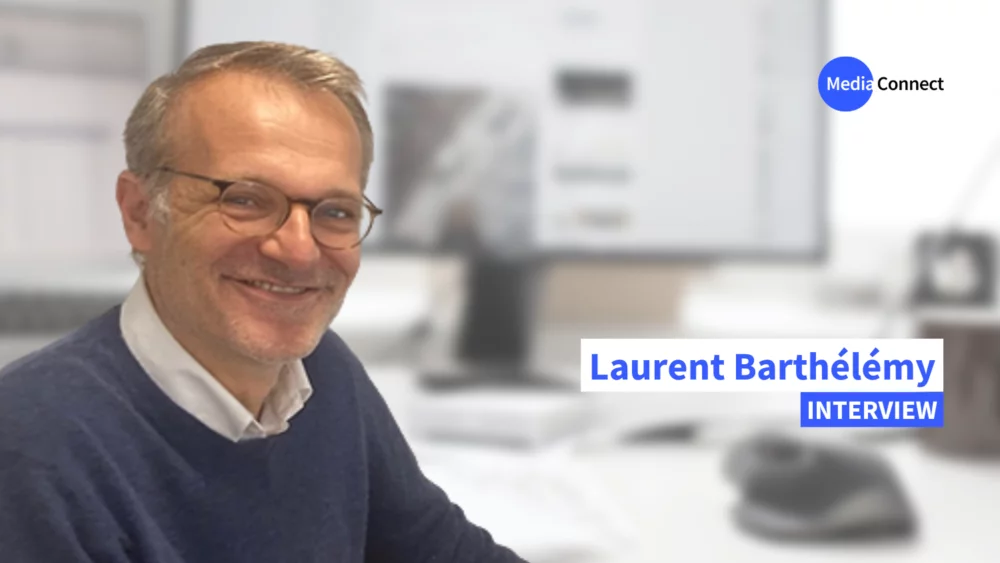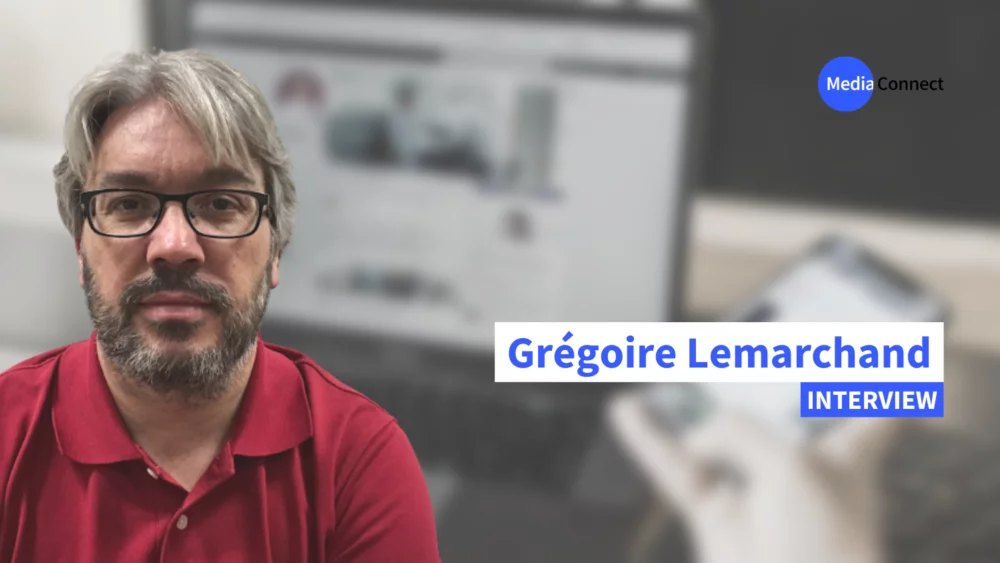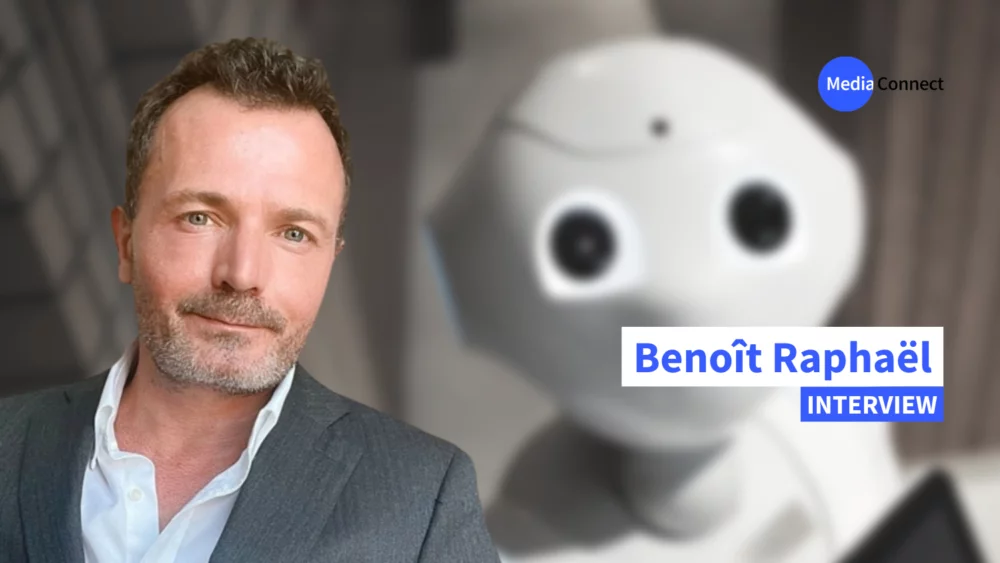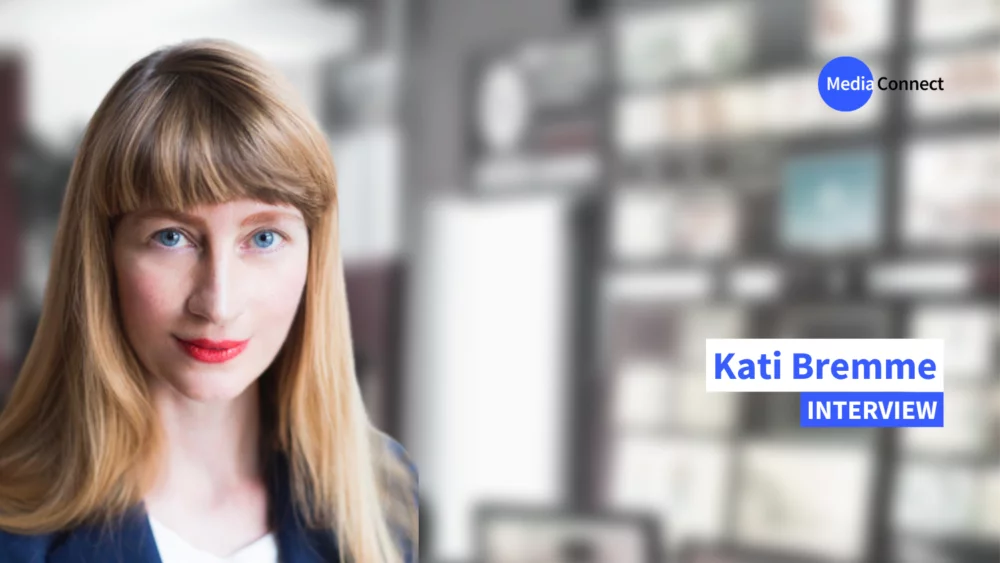What were your objectives in creating the "Vert" media?
Our objective was to create a major generalist media outlet focused on ecology because it seemed to us that there was no generalist media specialized in this field. There were only specialized media outlets that partially addressed ecological issues, such as Actu Environnement, or newspapers like Le Monde, which are generalist media primarily focused on international and political issues. There were also independent media outlets, such as Reporterre, which were more dedicated to social struggles and justice issues. Thus, at "Vert," we cover current events through the prism of ecology, which allows us to offer a variety of sections and topics around this theme.
What can be found on "Vert"?
"Vert" is primarily an online newsletter focused on ecology news, adopting a tone that is both educational and humorous. For us, it is important to address serious topics with lightness compared to what is usually read elsewhere. We cover hot news, whether political, economic, or societal. We address "colder" news by deciphering scientific reports and providing orders of magnitude. Our goal is to be educational and provide readers with tools to understand the extent of climate change and biodiversity collapse, while also discussing solutions. Thus, we investigate good solutions for our future while denouncing false solutions that involve greenwashing or are imbued with political language. Additionally, we have our news website on the Internet where all articles, reports, investigations, and interviews can be found.
Does "Vert's" information treatment resemble environmental journalism?
We do not consider it to be pure and hard environmental journalism. For us, ecology is not just a topic or a section but rather an approach to news treatment. Our goal is to integrate current events within planetary boundaries. Thus, we avoid encouraging our readers to travel excessively far or to adopt overconsumption. We prefer to decipher and inform about simple lifestyles that respect nature and our planet, as well as ourselves as human beings.
Once pointed out as a discipline dominated by activism, would you say that even today, there is a fracture between so-called traditional media and media like "Vert"?
One could see a certain fracture, but it is rather lines of force that cut across all media in general. Some media outlets can be considered engaged, even militant, but that is not our case. We seek to better explain to our audience what is happening concretely because often climate change is addressed in a detached manner. It is essential to explain how this is linked to our daily challenges, such as housing, food, and transportation, which constitute a major sector of greenhouse gas emissions. All these subjects are daily concerns that affect us as individuals, and we can address them in different ways in our newspapers and reports, whether on television or otherwise.
You intervene within editorial teams to provide them with tools and help them strengthen their environmental journalism skills. What are these tools?
We participated in the development of a charter aimed at providing the profession with a compass and "professional practices to effectively address ecological urgency." Thus, during the training sessions, I share many recommendations present in this charter, published on September 14, 2022. For example, I emphasize the importance of a transversal approach, using words and images commensurate with the urgency. We also provide in-depth scientific knowledge. I present the current state of global warming, explaining the causes and origins related to our human activities, such as transportation and agriculture. Today, we need to equip ourselves with new tools to read and understand the world, which poses a considerable challenge for journalists. It is not only about meeting the challenge of ecological urgency but also about renewing ourselves personally in our profession and our professional practice.
Do you perceive an evolution regarding awareness among journalists about the treatment of these subjects through your interventions?
Indeed, I have observed what I call a triangle of action. In 2022, scientists who began to strongly alert on these issues even went to see the editorial teams personally to tell them that they needed to improve their treatment. I think notably of Radio France and France Télévisions. On the other hand, citizens also mobilized to raise the alert level via collectives and used social networks to directly challenge journalists. The Charter also played an important role because afterwards, other media outlets adopted their own charter, such as Ouest France, which developed a charter inspired by ours, Sud-Ouest, and Le Monde.
Journalism evolves at the same pace as the rest of society, with pioneers ahead and laggards, lagging behind by definition. However, I note that this transition is still relatively slow. The current challenge is to overcome all these obstacles and to concretely apply the principles of ecology in editorial teams, which often have much larger audiences than engaged media like ours.
Interview conducted by Randa El Fekih
Our objective was to create a major generalist media outlet focused on ecology because it seemed to us that there was no generalist media specialized in this field. There were only specialized media outlets that partially addressed ecological issues, such as Actu Environnement, or newspapers like Le Monde, which are generalist media primarily focused on international and political issues. There were also independent media outlets, such as Reporterre, which were more dedicated to social struggles and justice issues. Thus, at "Vert," we cover current events through the prism of ecology, which allows us to offer a variety of sections and topics around this theme.
What can be found on "Vert"?
"Vert" is primarily an online newsletter focused on ecology news, adopting a tone that is both educational and humorous. For us, it is important to address serious topics with lightness compared to what is usually read elsewhere. We cover hot news, whether political, economic, or societal. We address "colder" news by deciphering scientific reports and providing orders of magnitude. Our goal is to be educational and provide readers with tools to understand the extent of climate change and biodiversity collapse, while also discussing solutions. Thus, we investigate good solutions for our future while denouncing false solutions that involve greenwashing or are imbued with political language. Additionally, we have our news website on the Internet where all articles, reports, investigations, and interviews can be found.
Does "Vert's" information treatment resemble environmental journalism?
We do not consider it to be pure and hard environmental journalism. For us, ecology is not just a topic or a section but rather an approach to news treatment. Our goal is to integrate current events within planetary boundaries. Thus, we avoid encouraging our readers to travel excessively far or to adopt overconsumption. We prefer to decipher and inform about simple lifestyles that respect nature and our planet, as well as ourselves as human beings.
Once pointed out as a discipline dominated by activism, would you say that even today, there is a fracture between so-called traditional media and media like "Vert"?
One could see a certain fracture, but it is rather lines of force that cut across all media in general. Some media outlets can be considered engaged, even militant, but that is not our case. We seek to better explain to our audience what is happening concretely because often climate change is addressed in a detached manner. It is essential to explain how this is linked to our daily challenges, such as housing, food, and transportation, which constitute a major sector of greenhouse gas emissions. All these subjects are daily concerns that affect us as individuals, and we can address them in different ways in our newspapers and reports, whether on television or otherwise.
You intervene within editorial teams to provide them with tools and help them strengthen their environmental journalism skills. What are these tools?
We participated in the development of a charter aimed at providing the profession with a compass and "professional practices to effectively address ecological urgency." Thus, during the training sessions, I share many recommendations present in this charter, published on September 14, 2022. For example, I emphasize the importance of a transversal approach, using words and images commensurate with the urgency. We also provide in-depth scientific knowledge. I present the current state of global warming, explaining the causes and origins related to our human activities, such as transportation and agriculture. Today, we need to equip ourselves with new tools to read and understand the world, which poses a considerable challenge for journalists. It is not only about meeting the challenge of ecological urgency but also about renewing ourselves personally in our profession and our professional practice.
Do you perceive an evolution regarding awareness among journalists about the treatment of these subjects through your interventions?
Indeed, I have observed what I call a triangle of action. In 2022, scientists who began to strongly alert on these issues even went to see the editorial teams personally to tell them that they needed to improve their treatment. I think notably of Radio France and France Télévisions. On the other hand, citizens also mobilized to raise the alert level via collectives and used social networks to directly challenge journalists. The Charter also played an important role because afterwards, other media outlets adopted their own charter, such as Ouest France, which developed a charter inspired by ours, Sud-Ouest, and Le Monde.
Journalism evolves at the same pace as the rest of society, with pioneers ahead and laggards, lagging behind by definition. However, I note that this transition is still relatively slow. The current challenge is to overcome all these obstacles and to concretely apply the principles of ecology in editorial teams, which often have much larger audiences than engaged media like ours.
Interview conducted by Randa El Fekih

